
United Nations Security Council resolution 812, adopted unanimously on 12 March 1993, after expressing its alarm at the humanitarian situation in Rwanda due to the ongoing civil war, in particular the number of refugees and displaced persons which posed an international threat to peace and security, the Council called upon the Government of Rwanda, the National Republican Movement for Democracy and Development, and the Rwandan Patriotic Front to respect a ceasefire that took place on 9 March 1993 and implement other agreements they had committed themselves to. It was the first resolution on the situation in Rwanda.
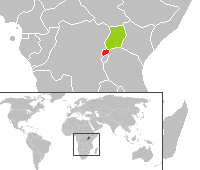
United Nations Security Council resolution 846, adopted unanimously on 22 June 1993, after reaffirming Resolution 812 (1993) on the situation in Rwanda and noting a report by the Secretary-General Boutros Boutros-Ghali, the council established the United Nations Observer Mission Uganda–Rwanda (UNOMUR) for an initial period of six months.

United Nations Security Council resolution 891, adopted unanimously on 20 December 1993, after reaffirming resolutions 812 (1993), 846 (1993) and 872 (1993) on the situation in Rwanda, the Council noted that the presence of the United Nations Observer Mission Uganda–Rwanda (UNOMUR) had contributed to the stability of the area and extended its mandate for an additional six months.
United Nations Security Council resolution 928, adopted unanimously on 20 June 1994, after reaffirming resolutions 812 (1993), 846 (1993) and 891 (1993) on the situation in Rwanda, the Council stressed the need to continue to implement the arms embargo on the country imposed in Resolution 918 (1994) and extended the mandate of the United Nations Observer Mission Uganda–Rwanda (UNOMUR) for a final period of three months until 21 September 1994.

United Nations Security Council resolution 977, adopted unanimously on 22 February 1995, after recalling Resolution 955 (1994) in which the council was to determine the seat of the International Criminal Tribunal for Rwanda (ICTR) and noting a report by the Secretary-General Boutros Boutros-Ghali, the council decided that its seat would be in Arusha, Tanzania.

United Nations Security Council Resolution 989, adopted unanimously on 24 April 1995, after recalling Resolution 955 (1994), the council listed the nominations for judges at the International Criminal Tribunal for Rwanda.

United Nations Security Council resolution 1005, was unanimously adopted on 17 July 1995, after recalling resolutions 918 (1994) and 997 (1995) on the situation in Rwanda. The Council noted the hazards posed by land mines and, acting under Chapter VII of the United Nations Charter, authorised appropriate amounts of explosives to be used exclusively for demining programmes in the country.
United Nations Security Council resolution 1028, adopted unanimously on 8 December 1995, after recalling previous resolutions on Rwanda, particularly Resolution 997 (1995), the Council considered a report by the Secretary-General and extended the mandate of the United Nations Assistance Mission for Rwanda (UNAMIR) for a period ending 12 December 1995. The extension was given so that the council had more time to consider the future of UNAMIR.
United Nations Security Council resolution 1165, adopted unanimously on 30 April 1998, after recalling Resolution 955 (1994), the council established a third trial chamber at the International Criminal Tribunal for Rwanda (ICTR).

United Nations Security Council resolution 1202 was adopted unanimously on 15 October 1998, after reaffirming Resolution 696 (1991) and all subsequent resolutions on Angola, including Resolution 1196 (1998) on Africa. The council extended the mandate of the United Nations Observer Mission in Angola (MONUA) until 3 December 1998.
United Nations Security Council resolution 1224, adopted unanimously on 28 January 1999, after reaffirming all previous resolutions on the question of the Western Sahara, the Council extended the mandate of the United Nations Mission for the Referendum in Western Sahara (MINURSO) until 11 February 1999.

United Nations Security Council resolution 1241, adopted unanimously on 19 May 1999, after noting a letter to the President of the Security Council from the President of the International Criminal Tribunal for Rwanda (ICTR), the Council endorsed a recommendation of the Secretary-General Kofi Annan that judge Lennart Aspegren complete the Georges Rutaganda and Alfred Musema cases which had begun before the expiry of his term of office.

United Nations Security Council resolution 1304, adopted unanimously on 16 June 2000, after recalling resolutions 1234 (1999), 1258 (1999), 1273 (1999), 1279 (1999), 1291 (1999) and 1296 (2000) on situation in the Democratic Republic of the Congo, the Council demanded the immediate withdrawal of Ugandan, Rwandan, Congolese opposition and other armed groups from Kisangani in the Democratic Republic of the Congo.
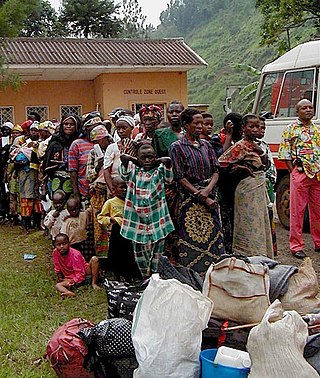
United Nations Security Council resolution 1332, adopted unanimously on 14 December 2000, after recalling resolutions 1234 (1999), 1258 (1999), 1265 (1999), 1273 (1999), 1279 (1999), 1291 (2000), 1296 (2000), 1304 (2000) and 1323 (2000) on situation in the Democratic Republic of the Congo, the Council extended the mandate of the United Nations Mission in the Democratic Republic of Congo (MONUC) until 15 June 2001.
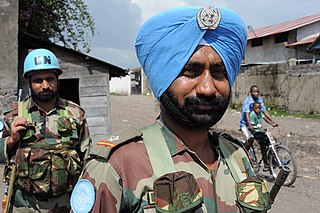
United Nations Security Council resolution 1445 was adopted unanimously on 4 December 2002. After recalling all previous resolutions on situation in the Democratic Republic of the Congo, the council expanded the military component of the United Nations Mission in the Democratic Republic of Congo (MONUC) to a level of 8,700 military personnel–up from 4,250–in two task forces.

United Nations Security Council resolution 1449, adopted unanimously on 13 December 2002, after recalling resolutions 955 (1994), 1165 (1998), 1329 (2000), 1411 (2002) and 1431 (2002), the Council forwarded a list of nominees for permanent judges at the International Criminal Tribunal for Rwanda (ICTR) to the General Assembly for consideration.
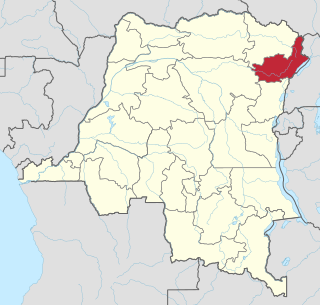
United Nations Security Council resolution 1468, adopted unanimously on 20 March 2003, after recalling previous resolutions on the situation in the Democratic Republic of the Congo, the Council welcomed an agreement on the establishment of a transitional government and requested an increased presence of the United Nations Mission in the Democratic Republic of Congo (MONUC) in the Ituri region in the east of the country amid escalating violence.

United Nations Security Council resolution 1477, adopted unanimously on 29 April 2003, after recalling resolutions 955 (1994), 1165 (1998), 1329 (2000), 1411 (2002) and 1431 (2002), the Council forwarded a list of nominees for permanent judges at the International Criminal Tribunal for Rwanda (ICTR) to the General Assembly for consideration.
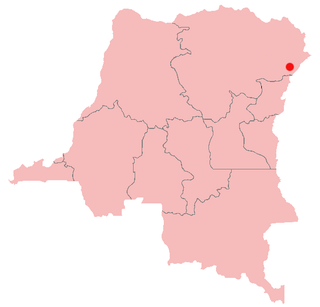
United Nations Security Council Resolution 1484, adopted unanimously on 30 May 2003, after recalling previous resolutions on the situation in the Democratic Republic of the Congo, the Council authorised Operation Artemis in Bunia, the capital of Ituri Province, amid the deteriorating security situation in the area.

United Nations Security Council Resolution 1698, adopted unanimously on July 31, 2006, after recalling all previous resolutions concerning the situation in the Democratic Republic of the Congo, including resolutions 1493 (2003), 1533 (2004), 1552 (2004), 1565 (2004), 1592 (2005), 1596 (2005), 1616 (2005), 1649 (2005) and 1654 (2006), the Council renewed sanctions against the country until July 31, 2007.














